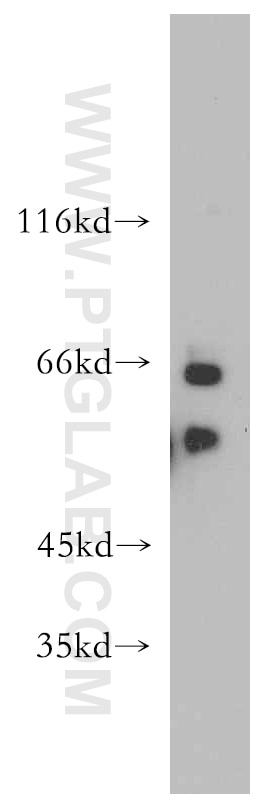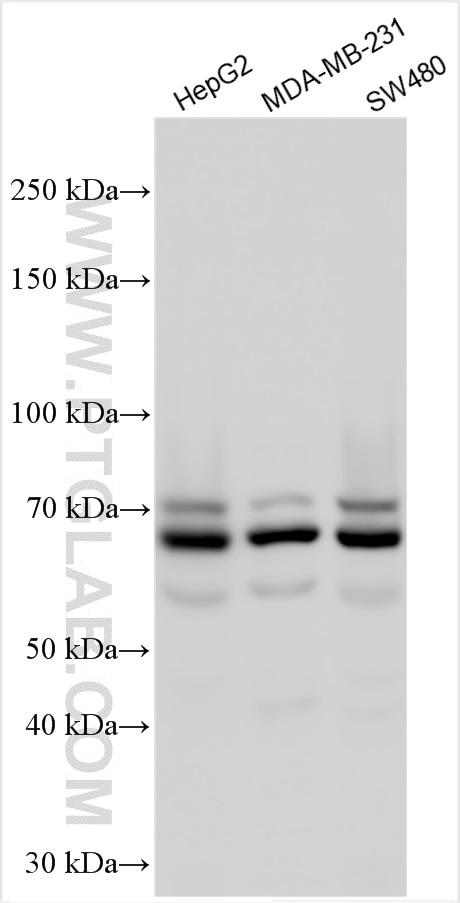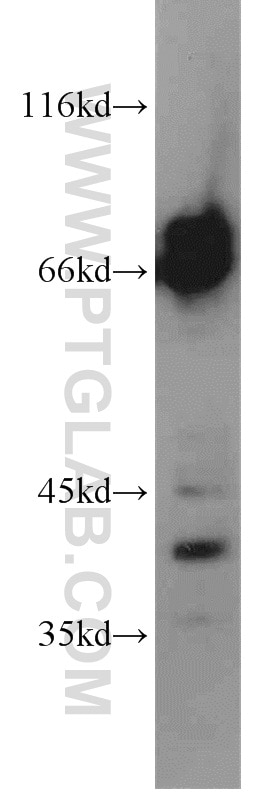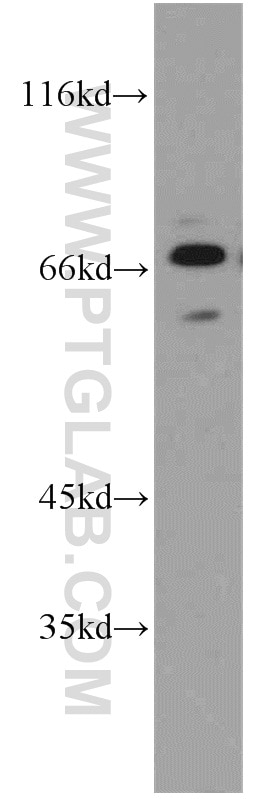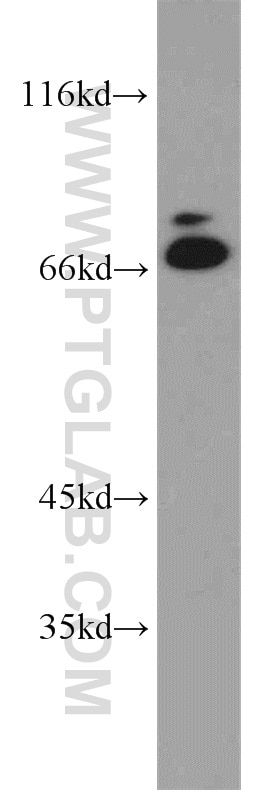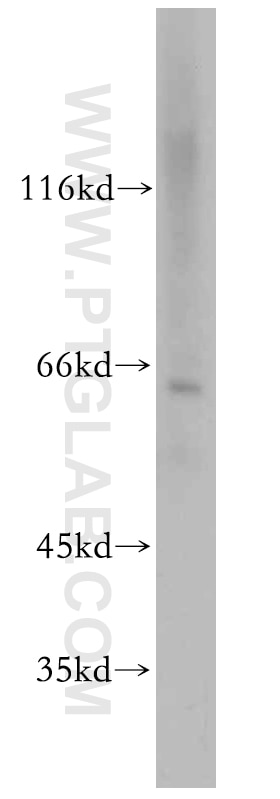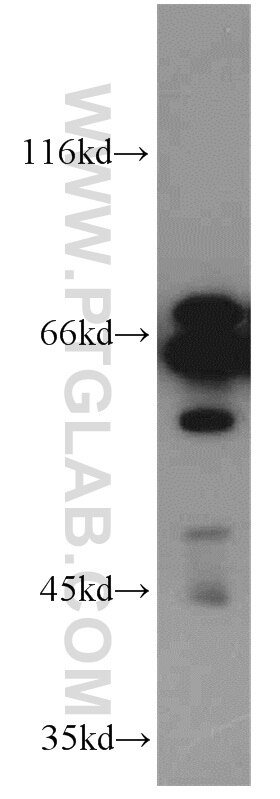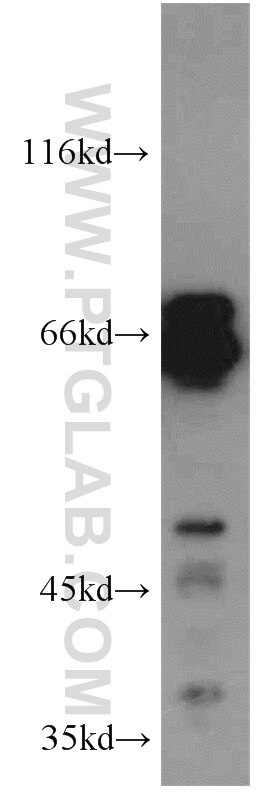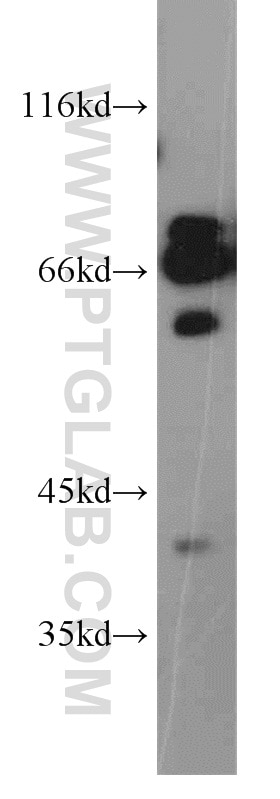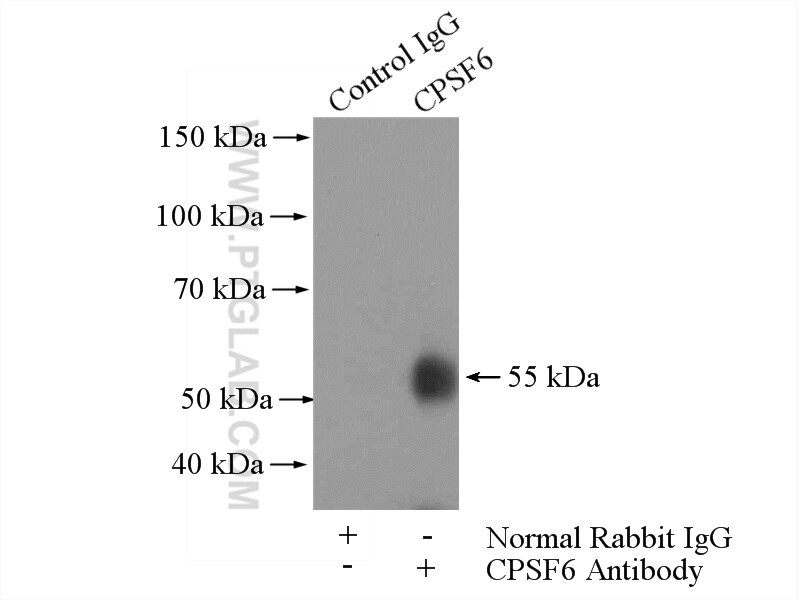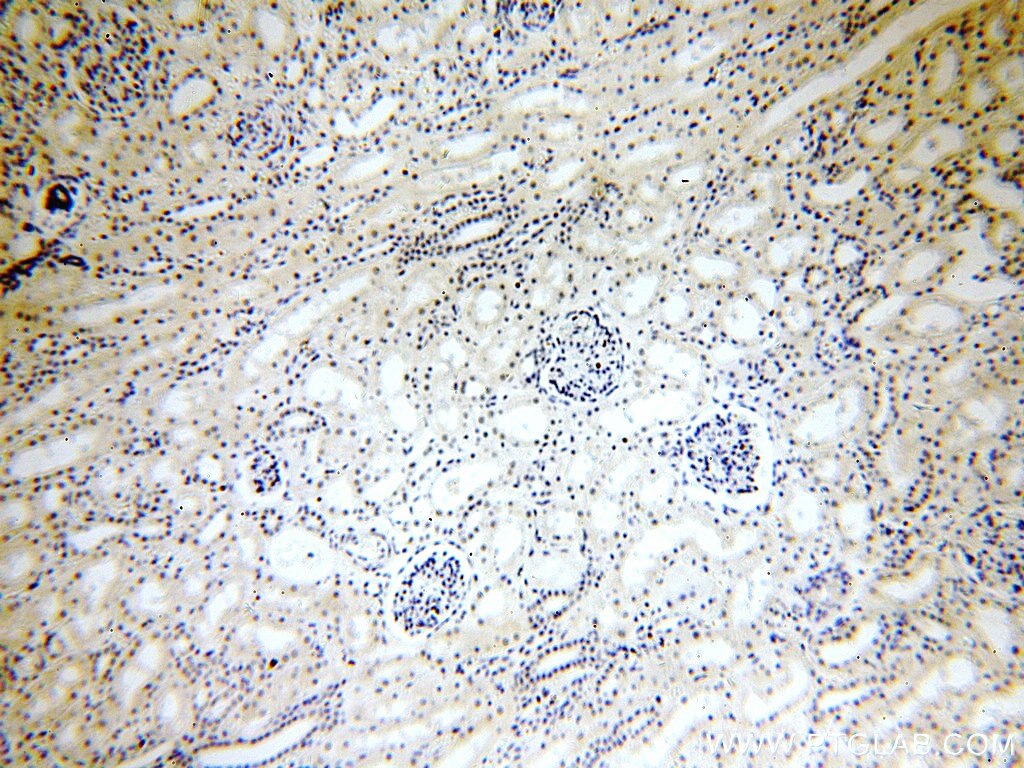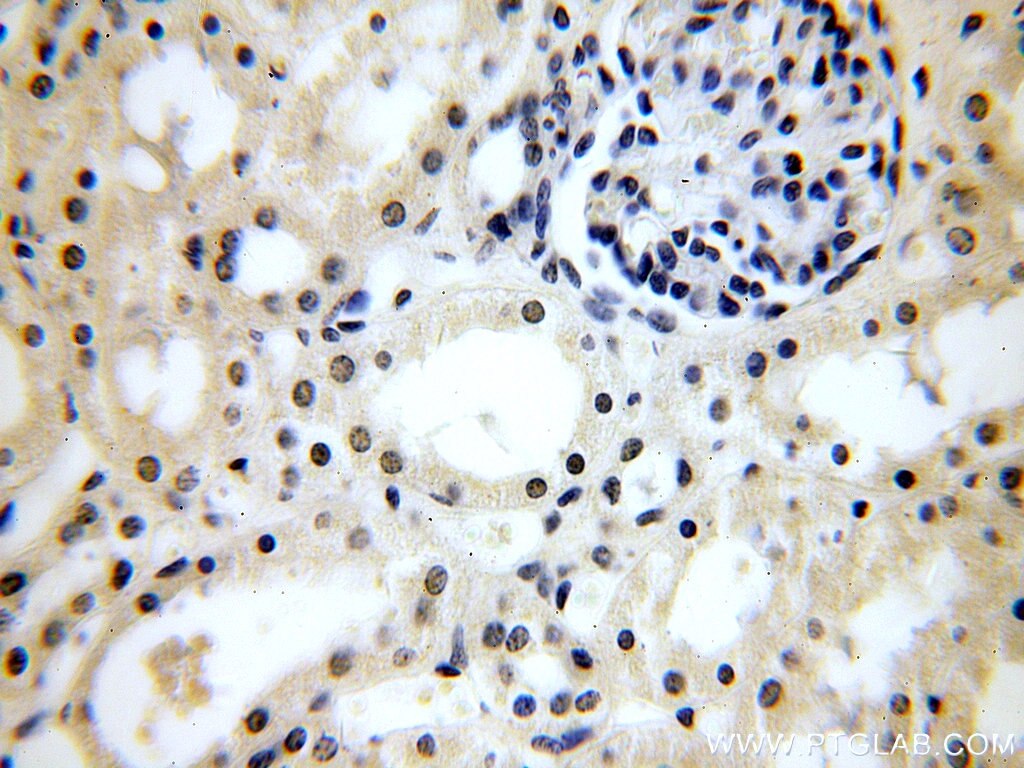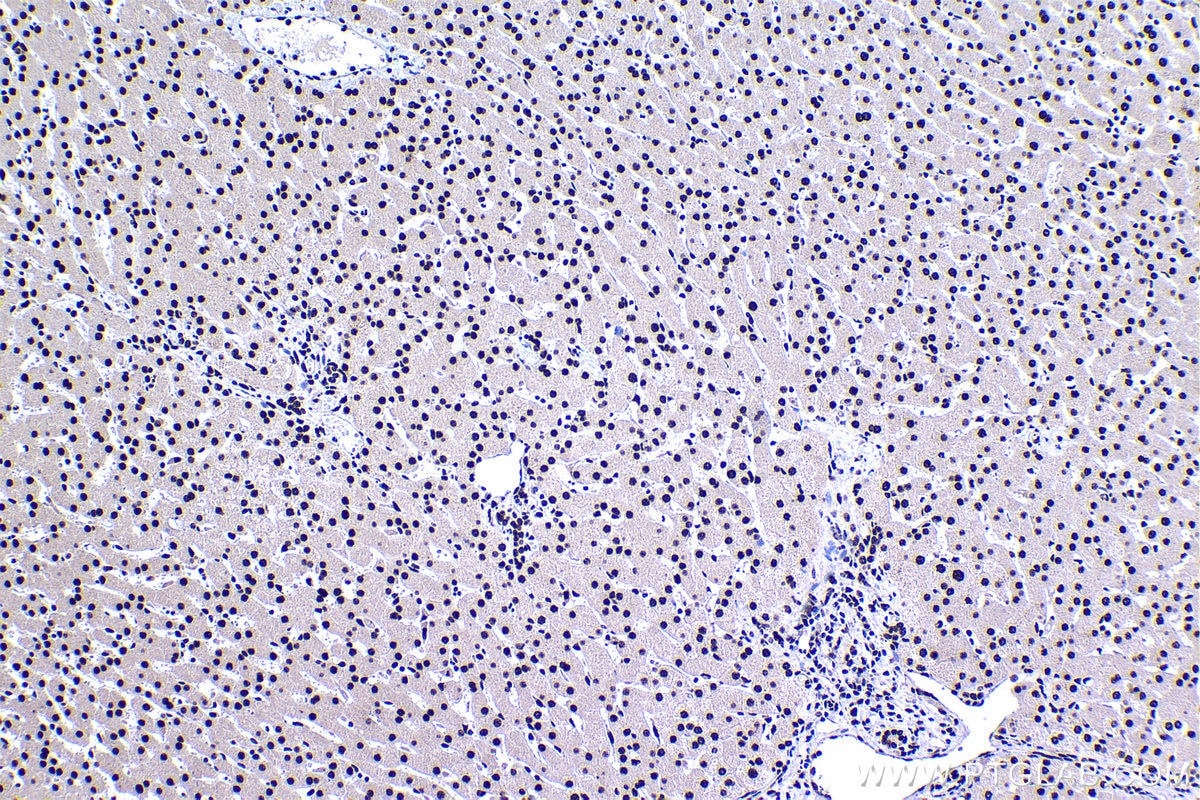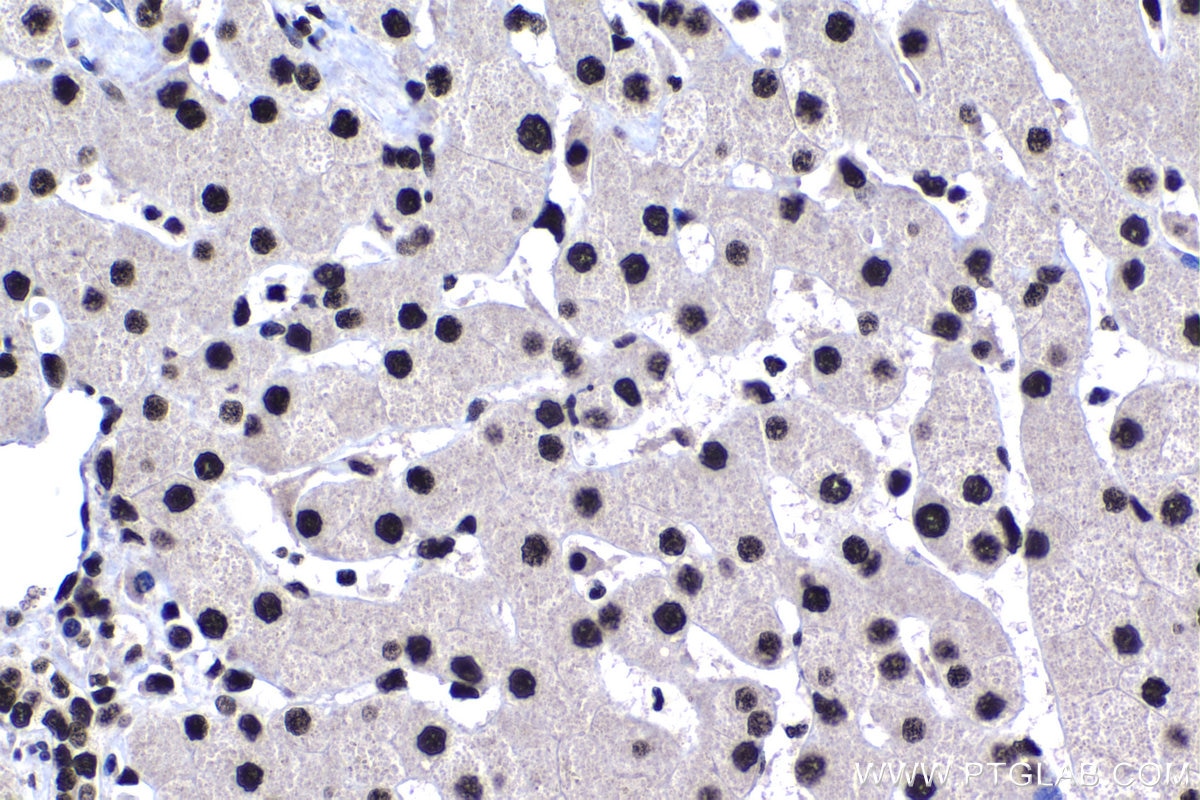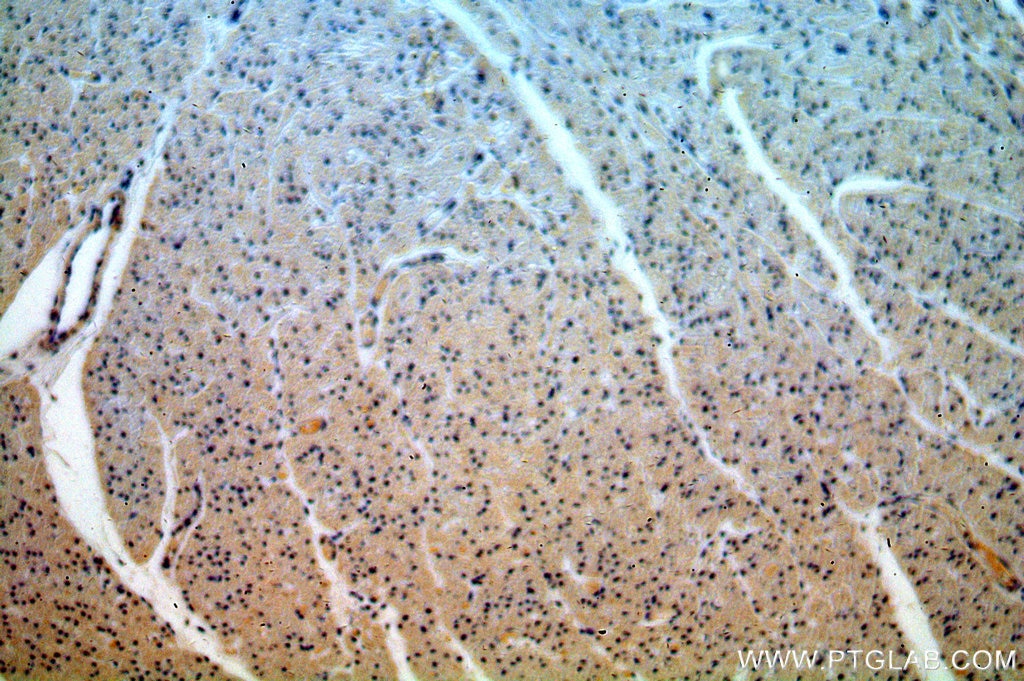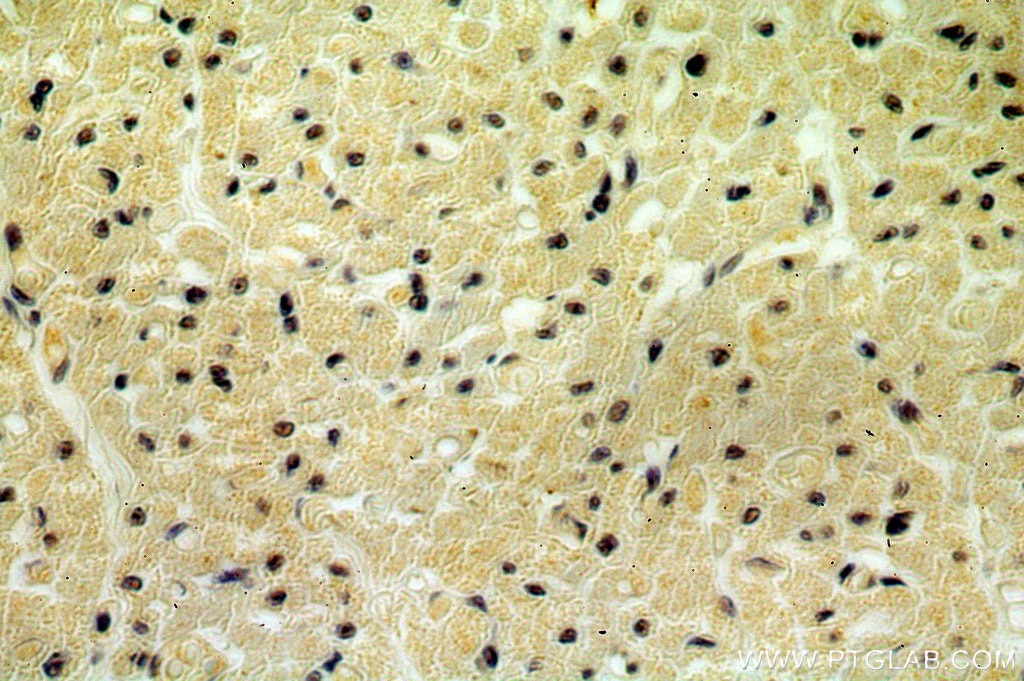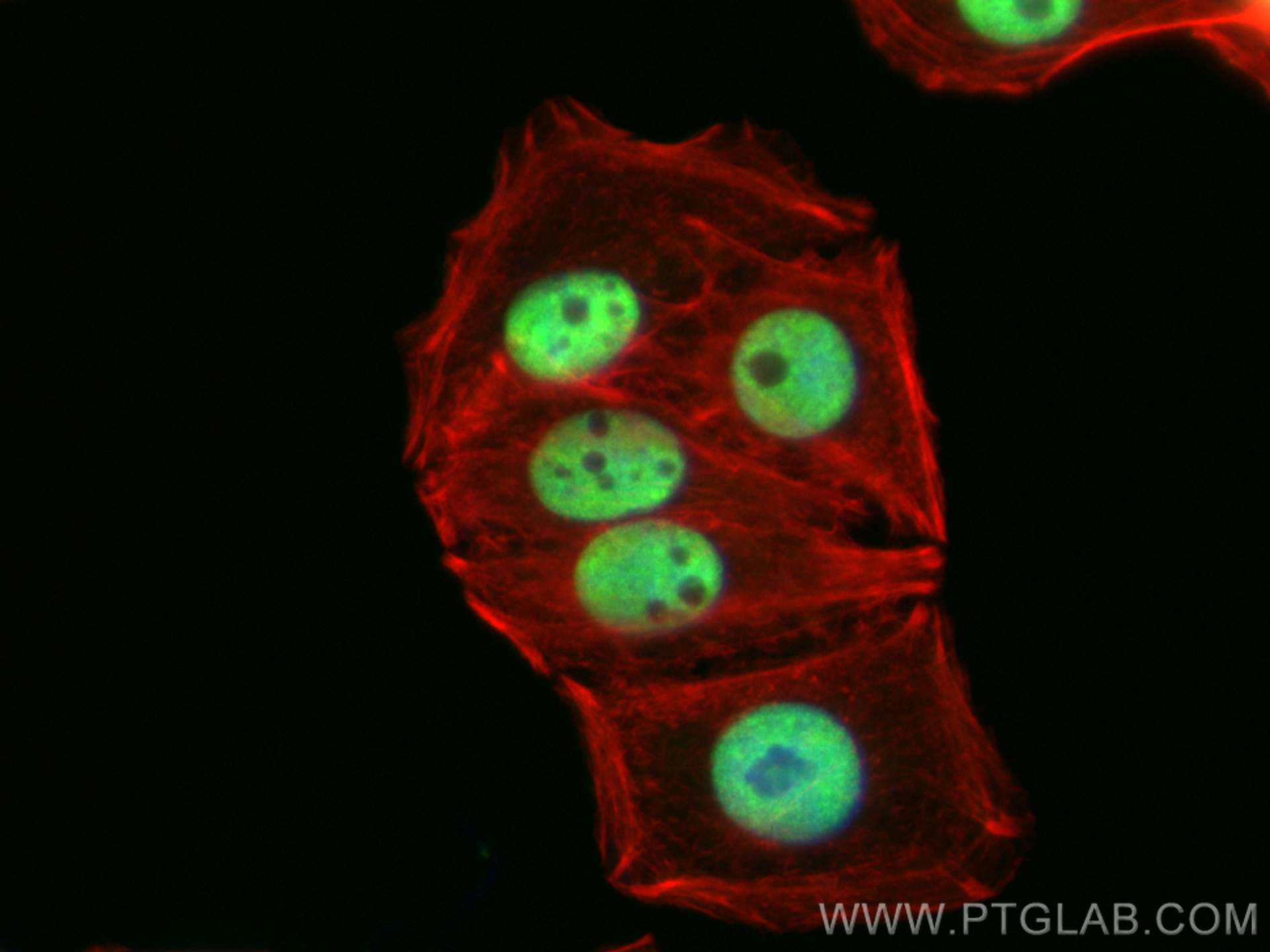- Phare
- Validé par KD/KO
Anticorps Polyclonal de lapin anti-CPSF6
CPSF6 Polyclonal Antibody for WB, IP, IF, IHC, ELISA
Hôte / Isotype
Lapin / IgG
Réactivité testée
Humain
Applications
WB, IHC, IF/ICC, IP, ELISA
Conjugaison
Non conjugué
N° de cat : 15489-1-AP
Synonymes
Galerie de données de validation
Applications testées
| Résultats positifs en WB | cellules HeLa, cellules HepG2, cellules Jurkat, cellules MDA-MB-231, cellules PC-3, cellules SW480 |
| Résultats positifs en IP | cellules HeLa |
| Résultats positifs en IHC | tissu hépatique humain, tissu cardiaque humain, tissu rénal humain il est suggéré de démasquer l'antigène avec un tampon de TE buffer pH 9.0; (*) À défaut, 'le démasquage de l'antigène peut être 'effectué avec un tampon citrate pH 6,0. |
| Résultats positifs en IF/ICC | cellules SW480, |
Dilution recommandée
| Application | Dilution |
|---|---|
| Western Blot (WB) | WB : 1:500-1:1000 |
| Immunoprécipitation (IP) | IP : 0.5-4.0 ug for 1.0-3.0 mg of total protein lysate |
| Immunohistochimie (IHC) | IHC : 1:250-1:1000 |
| Immunofluorescence (IF)/ICC | IF/ICC : 1:50-1:500 |
| It is recommended that this reagent should be titrated in each testing system to obtain optimal results. | |
| Sample-dependent, check data in validation data gallery | |
Applications publiées
| KD/KO | See 3 publications below |
| WB | See 9 publications below |
Informations sur le produit
15489-1-AP cible CPSF6 dans les applications de WB, IHC, IF/ICC, IP, ELISA et montre une réactivité avec des échantillons Humain
| Réactivité | Humain |
| Réactivité citée | Humain |
| Hôte / Isotype | Lapin / IgG |
| Clonalité | Polyclonal |
| Type | Anticorps |
| Immunogène | CPSF6 Protéine recombinante Ag7852 |
| Nom complet | cleavage and polyadenylation specific factor 6, 68kDa |
| Masse moléculaire calculée | 59 kDa |
| Poids moléculaire observé | 55-68 kDa |
| Numéro d’acquisition GenBank | BC000714 |
| Symbole du gène | CPSF6 |
| Identification du gène (NCBI) | 11052 |
| Conjugaison | Non conjugué |
| Forme | Liquide |
| Méthode de purification | Purification par affinité contre l'antigène |
| Tampon de stockage | PBS avec azoture de sodium à 0,02 % et glycérol à 50 % pH 7,3 |
| Conditions de stockage | Stocker à -20°C. Stable pendant un an après l'expédition. L'aliquotage n'est pas nécessaire pour le stockage à -20oC Les 20ul contiennent 0,1% de BSA. |
Informations générales
The binding of Cleavage factor Im (CFIM), also known as CPSF6, to the pre-mRNA is one of the earliest steps in the assembly of the cleavage and polyadenylation machinery and facilitates the recruitment of other processing factors. CFIM is required for the first step in pre-mRNA 3′-end processing and can be reconstituted in vitro from its heterologously expressed 25- and 68-kDa subunits. It involved in RNA binding, protein-protein interactions, and subcellular localization [PMID:15169763]. In addition, it is a pre-mRNA processing protein that dynamically shuttles between the nucleus and the cytoplasm and contains a C-terminal nuclear-targeting arginine/serine-rich (RS-) domain of the type bound by TNPO3[PMID:15169763,19864460].
Protocole
| Product Specific Protocols | |
|---|---|
| WB protocol for CPSF6 antibody 15489-1-AP | Download protocol |
| IHC protocol for CPSF6 antibody 15489-1-AP | Download protocol |
| IF protocol for CPSF6 antibody 15489-1-AP | Download protocol |
| IP protocol for CPSF6 antibody 15489-1-AP | Download protocol |
| Standard Protocols | |
|---|---|
| Click here to view our Standard Protocols |
Publications
| Species | Application | Title |
|---|---|---|
PLoS Pathog In Vivo Functions of CPSF6 for HIV-1 as Revealed by HIV-1 Capsid Evolution in HLA-B27-Positive Subjects. | ||
Elife Nuclear pore heterogeneity influences HIV-1 infection and the antiviral activity of MX2. | ||
J Virol Cell type-dependent escape of capsid inhibitors by simian immunodeficiency virus SIVcpz. | ||
iScience Multi-omics approach reveals posttranscriptionally regulated genes are essential for human pluripotent stem cells. | ||
J Virol Roles of capsid-interacting host factors in multimodal inhibition of HIV-1 by PF74.
|
Avis
The reviews below have been submitted by verified Proteintech customers who received an incentive forproviding their feedback.
FH Tatyana (Verified Customer) (03-11-2023) | The signal is not very bright but specific (siRNA knockdown verified). Predominantly nuclear, as expected. 4% PFA fixation followed by methanol permeabilization; antibody prepared in 5% goat serum in PBST; overnight incubation (no blocking step).
|
